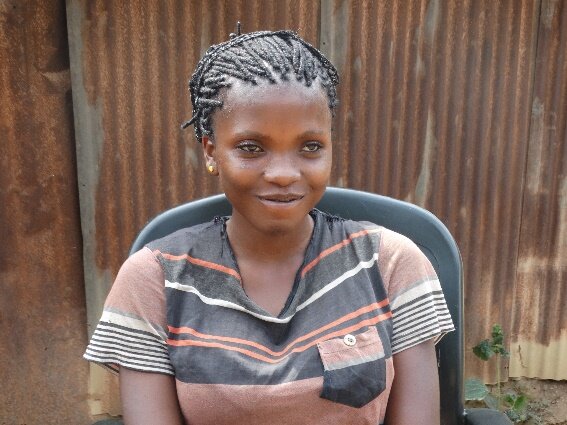Nigeria is Africa’s largest oil-producing nation, yet more than half of its population remains in poverty with an average life expectancy of just 52. Access to clean water and sanitation are one of the biggest challenges across the country and around 100 million Nigerians (two-thirds of the population) have no access to improved sanitation with many practising open defecation, spreading preventable diseases and contributing to high infant mortality rates.
United Purpose has worked in Nigeria since 1999. We work with women and communities to voice their rights and promote good sanitation and hygiene practices to reduce water-borne diseases.
Nineteen-year-old Ofada Eunice lives in Bayalele, a rural community in Nigeria and has been blind since birth.
Eunice comes from a community where traditions stigmatise menstruation. Before she started her periods, aged 15, Eunice had no understanding about menstruation and it was a shock to her when it first happened. She had no knowledge about menstrual hygiene or health because it was – and still is – such a taboo in her community.
Things changed when United Purpose through the RUSHPIN programme facilitated a series of menstrual hygiene and health (MHH) activities in her community. During these sessions, the myths around menstruation were dispelled as community members took part in open discussions around menstruation and established that it is a normal and natural part of being a woman.
Despite her sight problems, the facilitators made sure that Eunice benefited from the education so that she could learn about different options available for managing her periods.
Eunice now has a different outlook towards her menstrual hygiene and health. She says:
‘Now I won’t allow my disability to prevent me from taking pride in the cycle of menstruation. I can now manage it better without shame.’

